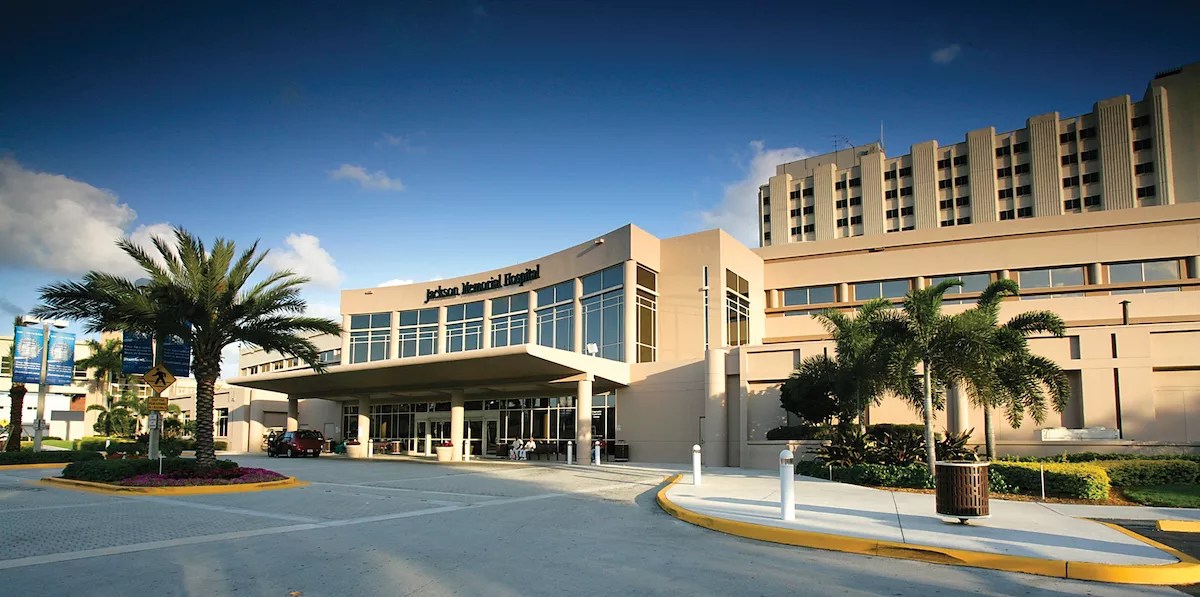
Courtesy of Jackson Health System

Audio By Carbonatix
At last count, 28.2 million Americans don’t have health insurance. That astonishing number doesn’t include people who technically have insurance but are too cash-strapped to pay their deductibles, out-of-network charges, and copays. Thanks to the United States’ inefficient and ultra-expensive health-care system, that means public hospitals are often on the hook when patients can’t pay or insurance companies refuse to cover medical bills.
At Miami’s largest hospital, Jackson Memorial, those unpaid bills can be staggering. In the 2016 fiscal year, Jackson Health System racked up over $884 million in uncompensated care charges, more than any other hospital in the nation.
The jaw-dropping figure comes from a report by a health-care consulting firm provided to Miami-Dade commissioners this week. The document shows that uncompensated care charges at Jackson have increased since 2014.
For hospitals in other states, the cost of uncompensated care has actually decreased in recent years because of Medicaid expansion. After Michigan expanded its Medicaid program in 2014, the total amount of unpaid bills decreased by nearly 50 percent.
But the Republican-controlled Florida Legislature has consistently rejected efforts to expand Medicaid in the Sunshine State, which would help
In addition to incurring the yearly costs of caring for uninsured and indigent patients, Jackson also lost $78.8 million in 2016 on unfunded programs, such as providing care for the county jail population and residents of two subsidized nursing homes. Jackson also serves some of Miami-Dade’s poorest neighborhoods, where residents are likelier to be uninsured or low-income.
The firm Balsano Consulting prepared the report in response to a 2016 request by county commissioners Barbara Jordan and Daniella Levine Cava. (The hospital’s 2018 budget included $442 million in county funding.)
In a memo attached to the report, Jackson Health System CEO Carlos Migoya described the hospital as “uniquely vulnerable” to cuts in federal, state, and county funding.
“By a wide range of measures, Jackson is the largest provider in Miami-Dade County of uncompensated care,” Migoya wrote. “No other hospital or health system was responsible for as many emergency visits, admissions, or charges for homeless patients and uninsured patients, or admissions and admission charges for non-paying patients.”